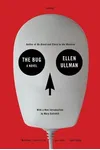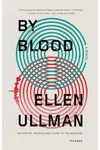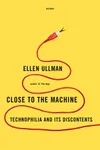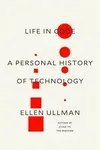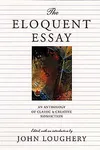Picture a coder who swapped keyboards for prose, weaving tales from the heart of Silicon Valley—meet Ellen Ullman! A self-taught programmer turned acclaimed author, Ullman’s books, like Close to the Machine and The Bug, blend tech’s gritty reality with human drama. Her unique lens on the digital age makes her a must-read for anyone curious about the soul behind the code.
Born around 1950, Ullman’s journey from English major to tech trailblazer is as fascinating as her writing. With a knack for storytelling and a coder’s precision, she captures the thrill and chaos of the tech world, proving that bytes and emotions aren’t so different after all.
The Making of Ellen Ullman
Ullman’s path to programming was anything but typical. Armed with a B.A. in English from Cornell University in the early 1970s, she moved to San Francisco, where a chance encounter with a Radio Shack TRS-80 in 1979 sparked her tech journey. Self-taught on that clunky machine, she dove into coding, despite admitting she lacked 'native talent' for it. Her adoptive father’s family, filled with computer scientists and mathematicians, nudged her toward software engineering, a field she entered in 1978. From there, she built a 20-year career, tackling electronic data interchange and graphical user interfaces before Windows even existed.
Ellen Ullman’s Unforgettable Stories
Ullman’s writing is a love letter to the messy, human side of technology. Her 1997 memoir, Close to the Machine: Technophilia and Its Discontents, is a cult classic that dives into her life as a rare female coder in the dot-com era. With poetic prose, she reveals the ecstasy and unease of crafting code that shapes lives. The book, a Salon Best Book, remains a touchstone for understanding tech’s cultural dawn.
Her novels, like The Bug (2003), a PEN/Hemingway Award runner-up, and By Blood (2012), a New York Times Notable Book, showcase her range. The Bug is a gripping tech thriller about a coder’s obsession with a software glitch, blending suspense with philosophical depth. By Blood, a dark, historical novel, explores identity and secrets, proving Ullman’s storytelling isn’t confined to tech. Her 2017 book, Life in Code, continues her memoir, offering sharp insights on AI, privacy, and tech’s societal shifts, earning praise from The New York Times.
Ullman’s style—lyrical yet incisive—bridges tech and literature. She tackles sexism, isolation, and the ethical dilemmas of coding, all while celebrating its creative spark. Her work feels like a late-night chat with a brilliant friend who’s seen it all.
Why Ellen Ullman Matters
Ullman’s impact lies in her ability to humanize technology. As one of the first to articulate coding’s emotional and cultural weight, she paved the way for writers exploring tech’s societal ripple effects. Her candid take on being a woman in a male-dominated field resonates today, especially amid ongoing debates about diversity in tech. By blending memoir, fiction, and essays, she’s created a blueprint for interdisciplinary storytelling, inspiring readers to question the tools shaping our world.
Her prescience—warning of privacy erosion and tech’s isolating tendencies—makes her work timeless. Ullman doesn’t just write about tech; she reveals its soul, urging us to stay connected to our humanity.
- Born: Around 1950
- Key Works: Close to the Machine, The Bug, By Blood, Life in Code
- Awards: The Bug (PEN/Hemingway runner-up), By Blood (New York Times Notable Book)
Snag Close to the Machine and dive into Ellen Ullman’s brilliant blend of tech and heart!
